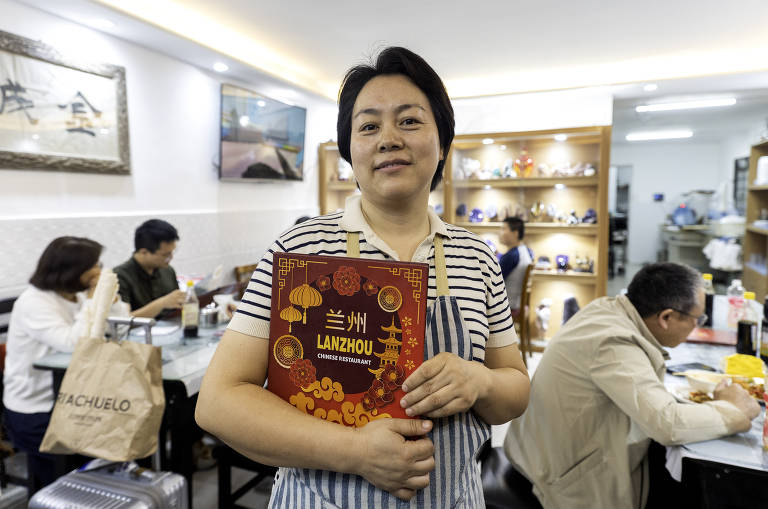São Paulo's South Zone Becomes a 'Chinese County' with a Wave of Companies and Restaurants

Opened in 2017, EZ Towers, in the south zone of São Paulo, is among the most valuable (read: expensive) office buildings in the country. At the entrance to Tower A of the two-building complex, as is standard, a panel lists the companies operating there. Of the 22 occupied floors, 10 are home to Chinese groups.
The presence of giants such as Huawei , Hisense and GWM exposes a trend in the region, which has become a kind of "Chinese county", with a high concentration of companies from the country , a trend that has been reinforced in recent years.
Folha identified at least 44 multinationals from the Asian country with offices in the area encompassing the Itaim Bibi, Vila Olímpia, Brooklin, and Cidade Monções neighborhoods. A third of them arrived after 2021, a wave that brought mainly technology and electric vehicle groups.
Giants such as automakers BYD and GAC , commodities trader Cofco , electricity company State Grid , mobile phone brand Oppo and logistics company J&T Express are based in the region.
"There's an image component [to this choice], to show how big they are and, therefore, they will be located where the country's largest companies are," says Daniel Lau, who provides consultancy to Chinese companies in Brazil.
The first major Chinese companies to set up shop in Brazil, back in the 1990s, chose Avenida Paulista and surrounding streets in Paraíso. The area still boasts more than a dozen offices, including those of the Bank of China and tech giant Didi, owner of 99 .
Most companies, however, have migrated to the southern part of the city. Regardless of their location, the offices follow the pattern of Chinese global companies, with an average of 20% of employees "imported." The arrival of expatriates has boosted another business surrounding the commercial buildings: the restaurant industry.
An area spanning approximately six blocks in Brooklyn has become a hub for restaurants serving cuisine from various regions of China. This trend began about seven years ago, when in 2018, Renato Yang decided to leave his job as a cook in Huawei's cafeteria to open his own business.
He and his wife, Rita Yang, also Chinese and renamed Western, saw an opportunity in the arrival of other expats in the region. There were a growing number of compatriots dissatisfied with the local cuisine and missing Asian spices.
The duo opened Lanzhou, a restaurant named after their hometown in western China. For nearly five years, the restaurant reigned supreme, but the arrival of dozens of businesses after the pandemic has fueled competition.
Since 2023, four new Chinese-owned restaurants have opened around Lanzhou. On a Wednesday night in May, Folha reporters saw them all full, in contrast to other empty bars and restaurants in the area.
"Business is heaviest in the early evening, starting at 6 p.m.," says Alex Wu, who opened Xiang Man Yuan six months ago. Traditionally, Chinese people eat dinner early and prefer the last meal of the day to socialize with colleagues, explains the owner.
Having lived in Brazil for 20 years, he worked in retail before opening the restaurant, which serves Cantonese food. At Wu's restaurant, as at the other four, over 90% of the tables were occupied by Chinese, some still wearing Oppo, BYD, and Huawei badges around their necks.
The owner says that at lunchtime more Brazilians show up, but the majority are still immigrants who miss the food from home.
In the region, another sector celebrating the arrival of Chinese residents is real estate. Two sales managers interviewed by Folha reported a boom in demand from expats, who are opting for apartments in Chucri Zaidan, Chácara Santo Antônio, and Cidade Moções.
They already represent 1 in 5 sales in the region. According to brokers, they demand that the property be close to the office. Since remote work isn't available at the companies where expats work, commuting is a priority for those who want to escape São Paulo's traffic and complain about the lack of public transportation.
uol






